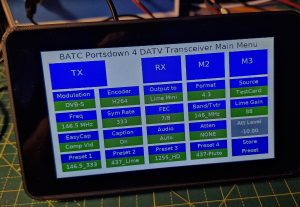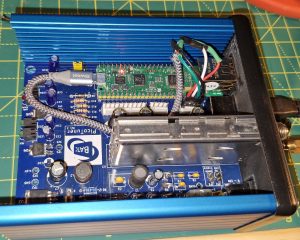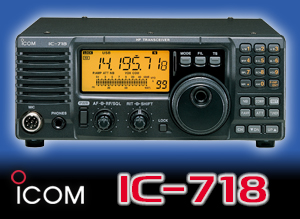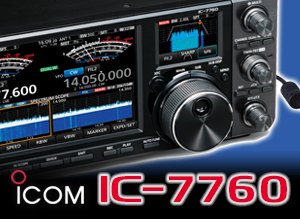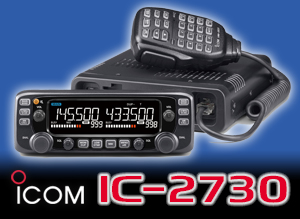March 2025 – Strategic priorities update
Taking amateur radio to a new audience
As a radio amateur I consider myself to be in a very privileged position as a licence holder. The licence offers me almost endless opportunities to tinker – and that’s what I very much like to do.
Over the last couple of weeks, I have constructed a couple of the BATC projects. Firstly, the Pico Tuner – this is a fully functioning dual-channel TV tuner based on a Serit NIM which uses a Raspberry Pi Pico Microcontroller to provide the interface to a PC. Secondly, I have constructed the Portsdown 4 DATV Transmitter; mine utilises a Lime SDR mini, a Raspberry Pi 4 and a touch screen. Combined with some 3D printed components I have a very neat looking piece of equipment. So far, I’ve transmitted digital TV from one end of the shack to the other. No great feat I hear you say, and that may be true, but I still get an enormous thrill out of using homemade equipment of any form.
The point I am trying to make here is that this makes me wonder ‘what’ exactly I am as we like to categorise people and put them in boxes. As I haven’t transmitted on HF for a few weeks, some would argue that my activities are not ‘amateur radio’, but perhaps I am a maker or a software guy? Maybe I’m just a hobby electronics experimenter? Am I a 3D printing enthusiast? Whichever way you look at me, holding an amateur radio licence is a great asset to my activities and it opens up a whole new world of experimentation for me.
I read with great interest the column in February 2025 RadCom by RSGB General Manager Steve Thomas, M1ACB where he emphasised that “people doing practical things is the key to engagement”. This statement is very well supported by looking at the enthusiasm and numbers of people who signed up for the microcontroller workshop I ran at this year’s RSGB Convention; we had a lot of fun and people learned along the way. The hands-on approach was well received, and we built some fun software and microcontroller-based projects together. You can find out more on the RSGB website via rsgb.org/practical-events
Never has the technological pace been greater and everything we do in the hobby is changing in one way or another.
When I joined the RSGB in 1984, I was looking for technical articles and projects plus the use of the QSL Bureau. The internet is now awash with projects for the radio amateur, and I use LotW for my QSL requirements; times have changed completely.
As an example, in my lifetime technology has moved so fast, making very advanced technical spec equipment well within our reach. The availability of the NanoVNA and TinySA (to name just two) have put previously advanced technology into our hands at very low cost. As a ham interested in home construction, there has never been a better time! It does seem, however, that home construction is on the decline, and the dealers I talk to tell me the newly licenced radio amateur wants to purchase a black box, plug it in and get on the air. The hobby does remain extremely diverse and there are many aspects an individual can turn their hands to, but it seems to me that the overall level of detailed technical knowledge in our community is on the decline. There are still those who dabble as I do, but I wonder what the picture will be like in the future.
We need to take our hobby to the maker community and show them what a great asset the amateur radio licence really is.
Maker Community Champion
I hope you will have seen the recruitment campaign for a new volunteer role I have called the “Maker Community Champion”. As part of the growth strategic workstream ‘Reimagination’ we want to take amateur radio to a new audience. There’s a whole community of tinkerers out there who, like me, would find great enhancement to their hobby activities by holding an amateur radio licence. I hope we can find the right volunteer to take the RSGB and all our hobby has to offer to this new audience, and I also hope clubs and individuals in the hobby will welcome newcomers from non-traditional technical backgrounds with open arms.
FOSDEM 2025
By the time you read this, I will have attended FOSDEM 25 – this is a free event for software developers to meet, share ideas and collaborate. Every year, thousands of developers of free and open-source software from all over the world gather at the event in Brussels.
There is a strong amateur radio presence at the event through an infostand. The main goal of the infostand is to change the public image of amateur radio, to show that the hobby is not a relic of the 20th century but a 21st century pastime at the forefront of technology.
The infostand is very important in demonstrating to the audience of FOSDEM that amateur radio is still at the forefront of the development of open systems for all types of radio-communication.
As amateur radio is more than just off-the-shelf radio equipment, the stand not only focuses on technology, but includes examples of other aspects of the hobby.
I will write more on my experiences in Brussels at FOSDEM when I return, but I believe that there are important things we can learn from the infostand about promoting amateur radio to new audiences, particularly at events.
Mark Jones, G0MGX
Board Director
strategy@rsgb.org.uk
-
You can also find this update in the March 2025 RadCom
Category: RSGB Notices, RSGB Strategic Priorities

